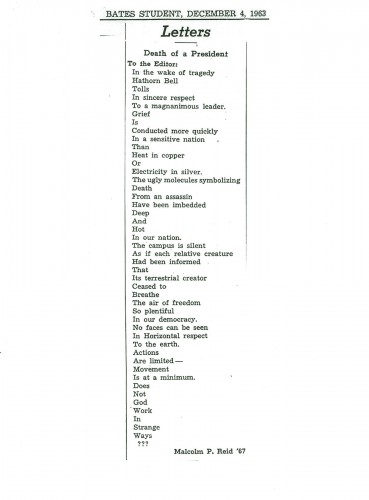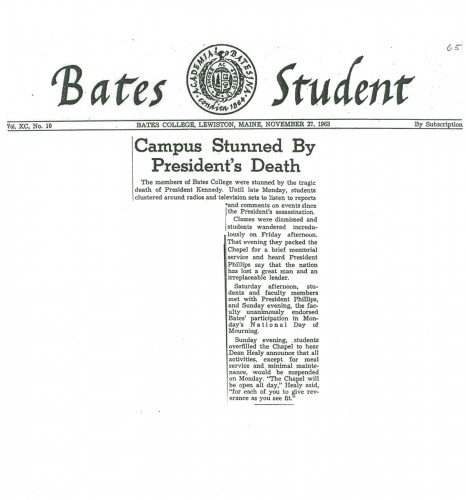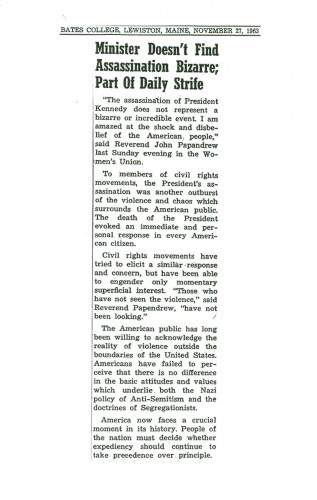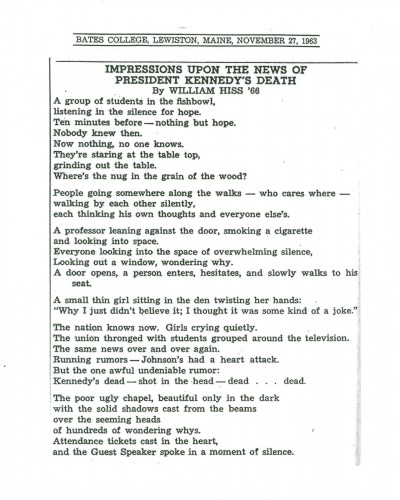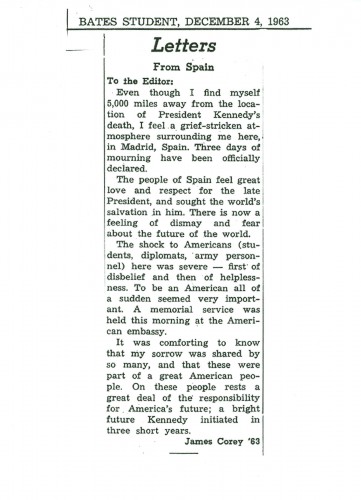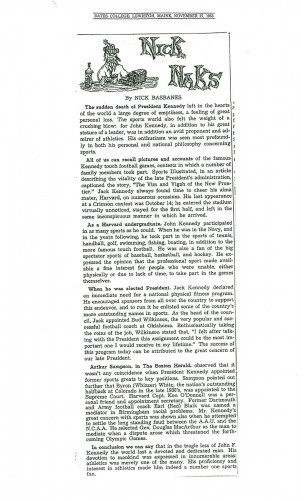After JFK’s assassination, The Bates Student reflects a grieving community
After the assassination of President Kennedy on Nov. 22, 1963, there were no blogs, Twitter or Facebook to help millions express their grief.
But there were other communications media, like newspapers. And at Bates, The Bates Student offered a place for students and faculty alike to find support and community.
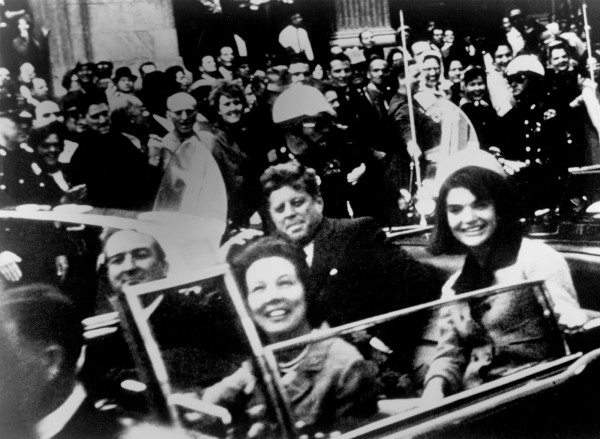
President John Kennedy and Jacqueline Kennedy ride with Texas Gov. John Connally and Nellie Connally in the presidential motorcade on Nov. 22, 1963, in Dallas. (Victor Hugo King / Library of Congress Prints and Photographs Division)
Mac Reid ’67 wrote the poem “Death of a President” that appeared in the Dec. 4, 1963, issue. Like most people who can recall that day, Reid’s memory is specific.
“I remember hearing the news of JFK’s assassination and walking across campus to West Parker. There were few students out and about. No one was talking. Students were looking down, perhaps not to make eye contact that would commence a conversation. No one knew what to say.”
That perception is perhaps reflected in one of the poem’s lines: “Actions are limited — movement is at a minimum.”
Reid recalls how he “got back to my dorm room and just lay on my bed trying to make sense of it, especially the feeling of having no concept that our president could ever be killed.
“Then I got off my bed and wrote the poem.”
Now retired from a career as a school superintendent, Reid has always written poetry, but nothing in the style of “Death of a President.”
But the poem does have one thing in common with his other writing, he says. It’s about “what poetry can do to make connections with people I know and care about.”
In his Dec. 4, 1963, Bates Student letter to the editor, Mac Reid ’67 turns to poetry and metaphor to express the anguish of the time:
The Nov. 27, 1963, issue of The Bates Student offers campus reaction to the assassination of President Kennedy five days earlier on Nov. 22, 1963:
A Unitarian Universalist minister, John Papandrew was active in the civil rights movement. In 1962, he marched and went to jail with Martin Luther King Jr. and other clergy in Albany, Ga.
Anyone shocked by Kennedy’s death, Papandrew told the Bates audience in his talk two days after Kennedy’s assassination, should acquaint themselves with similar violence surrounding the civil rights movement:
In The Bates Student of Nov. 27, 1963, a poetic essay by Bill Hiss ’66, who retired in 2012 from a career as a Bates admission dean and vice president, suggests the indelible memories created in the hours and days after the assassination:
James Corey ’63 offers an international perspective in his Dec. 4, 1963, Bates Student letter to the editor from Spain:
In an act of creative generosity that would become a trademark of sorts, the late Professor of English and poet John Tagliabue offers the Bates community a literary perspective on Kennedy’s death:
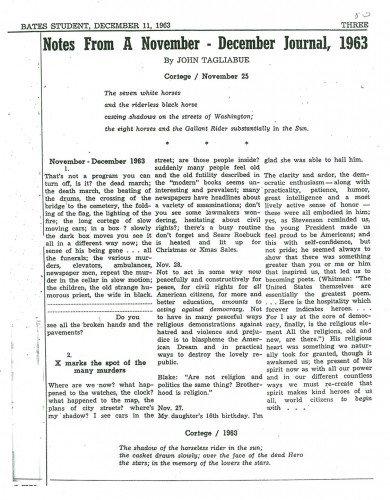
Now a best-selling author of books about books and bibliophiles, Nick Basbanes ’65 was sports editor of The Bates Student in 1963. He devotes his Nov. 27, 1963, column to President Kennedy’s sports legacy:
